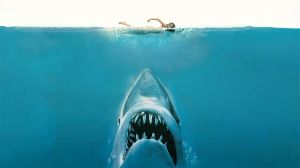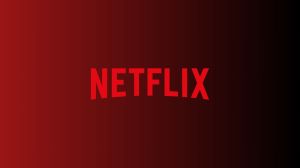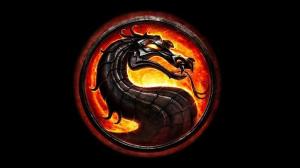Stephen King published his first novel, Carrie, in 1974, which was then adapted into a film by Brian De Palma in 1976. King’s 1975 novel Salem’s Lot was adapted into live-action in 1979, but rather than hitting the big screen, it was a two-part TV miniseries. In 1990, one of King’s most beloved novels, IT, was also adapted into a two-part TV event, resulting in a surge in the following decade of King novels being brought to life as limited events. While many of King’s TV adaptations are well-known and cherished by fans, they haven’t entirely stood the test of time, especially in comparison to more recent projects being able to embrace a larger production value to shine a light on their predecessors’ shortcomings. Despite how poorly those earlier efforts hold up, as well as recent adaptations leaving much to be desired, all King TV adaptations bring with them a specific charm and sense of nostalgia that always makes them worth watching.
Videos by ComicBook.com
Having sold more than 350 million copies of his books, King’s talents as a writer are undeniable. His strengths largely come from the characters he creates, specific tones he manages to capture, and finding the right blend of otherworldly events and grounded scenarios. Even outside of the world of horror, like novellas The Body and Rita Hayworth and Shawshank Redemption, or his collected book The Green Mile, his straightforward dramas all come with an element of mystery and the existence of mysticism outside of human understanding. Regardless of the eloquence of his prose, however, what makes his stories hold so much potential for adaptations is that these narrative strengths aren’t intrinsically tied to his writing being particularly verbose.
All King stories are conversational and approachable, as he writes in a way that is accessible and welcoming to readers of all skill levels. While some readers might see this as a detriment, it means that there’s plenty of room for interpretation on the part of filmmakers. It’s in this casual writing style that holds the key to the charm of early TV adaptations of his works.
In IT, a group of adults battles an interdimensional entity in its subterranean shelter as it grows to a massive size. In The Tommyknockers, a man discovers a spaceship buried in his town, as he uses telepathic abilities to launch the craft back into space. The Stand, one of King’s largest books, blends horror, science-fiction, fantasy, and drama to explore a post-apocalyptic world in which the forces of evil wage war with the remnants of humanity. In other words, some of King’s most ambitious stories have been brought to life for network television, most of which fail to capture even a fraction of the effectiveness of their source material, due largely to production constraints.
When these limited or miniseries events originally debuted, they were considered “event television.” Networks would spend weeks or even months teasing their debut as they hoped to draw in as many viewers as they could. This would also ignite excitement in viewers who were unfamiliar with the source material, in some ways functioning as an impromptu book club, drawing hopeful viewers to book stores and libraries to catch up on the excitement of these adaptations. It didn’t matter so much what the actual quality of any of these adaptations were, as it was an opportunity to see one of the most accomplished and inventive genre storytellers be honored alongside programs that might be considered more prestigious. While horror and sci-fi have always been popular, seeing them get the same attention as more sophisticated fare justified all those fans who would rather invest in aliens, monsters, and murderers, serving a much higher purpose from a cultural standpoint than their merit in the world of filmmaking.
Another widely held opinion of King’s works is that, despite how readers often don’t want his stories to end, they have been known to last for many more pages that readers might deem necessary. Even though there are a number of successful films based on his stories, limited or miniseries allow viewers to spend much more time with these characters and in these worlds than would be feasible in a feature film. As compelling as Stanley Kubrick’s The Shining is, its run time doesn’t allow audiences to fully witness Jack Torrance’s descent from an immensely loving father into a horrifying patriarch as well as the miniseries adaptation allows. Surely the more unconventional plot points are what draw fans to King’s concepts, but what makes them so enjoyable is fully immersing ourselves in the world of these characters, making us care about them tremendously and grow far more invested in their wellbeing. While there are many great films based on King’s stories, they often fail to capture the extended amount of time in these worlds and with these characters that are accomplished on TV.
In recent years, King fans have had an embarrassment of riches across multiple platforms when it comes to adaptations. Whether it be HBO giving us The Outsider or Hulu giving us Castle Rock, these adaptations demonstrate much more competent storytelling than virtually any miniseries the ’90s had to offer. Not all adaptations are successes, of course, as Under the Dome and The Mist arguably fell short of fan expectations. Making matters even more frustrating is that, despite fans and critics offering more acclaim to The Outsider and Castle Rock, they both, as well as Under the Dome and The Mist, were cancelled by their respective networks before getting to develop an official series finale. Even with their many accomplishments, the best King series and their ambitions are too great to sustain for the long term.
No matter what generation of King fan you belong to, and no matter what your genre interests might be, all TV series based on his works are worth checking out. With more than 60 novels and 200 short stories to his name, it can be difficult to decide which narratives to invest in, and, if nothing else, spending a few hours in one of his worlds will either excite you to invest further or confirm your lack of interest in a specific storyline. Given the prominence of streaming services and how they make anything you want to watch available to you instantly, those older, albeit poorer quality adaptations will also spark feelings of nostalgia for preparing for the debut of these events, while also reminding you how much better you have it now.
The most recent King adaptation, The Stand, debuts new episodes on CBS All Access every Thursday.
Which King TV show is your favorite? Let us know in the comments below or contact Patrick Cavanaugh directly on Twitter to talk all things horror and Star Wars!









